Imagine it’s the year 1180.
You’re a young person who has just been sent to join the local monastery.
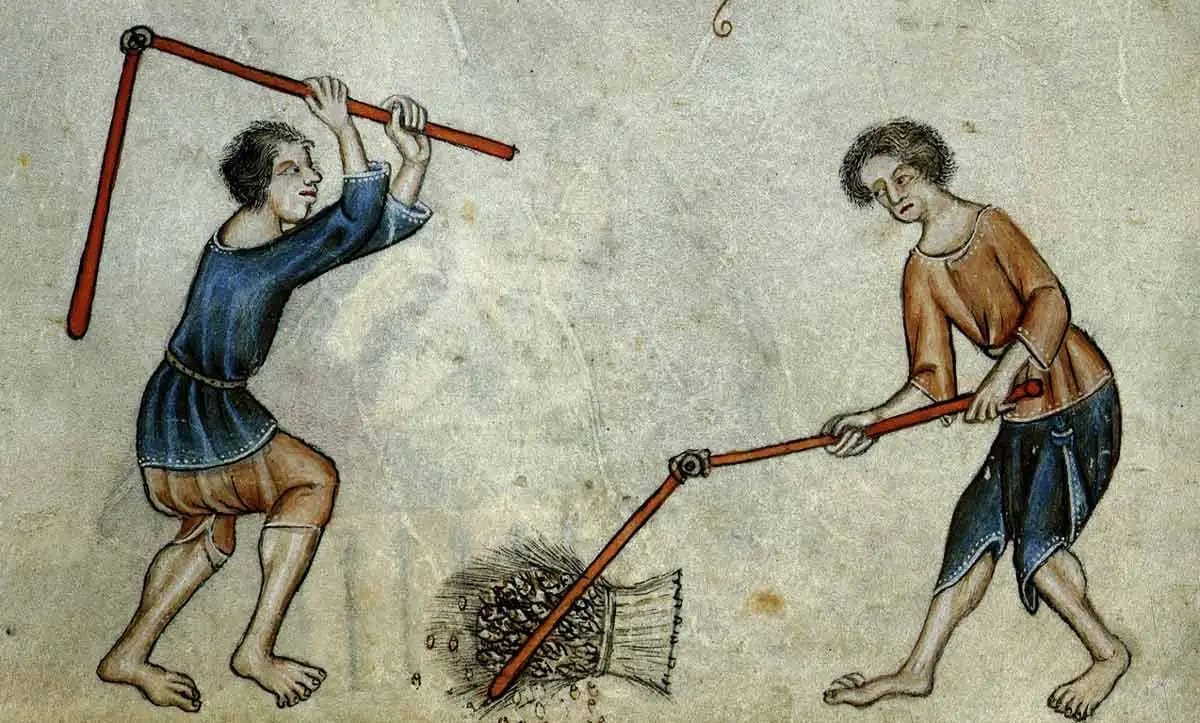
When you think of life in medieval monasteries (as we all occasionally do), what comes to mind?
I imagine monks gathered in prayer or drinking beer together.
Sounds like a decent life to be honest.
However, monks also spent a lot of time doing something that almost nobody else did during the Middle Ages: writing.
Many medieval monasteries had a room called a ‘scriptorium.’
It was in these rooms that monks would spend years of their lives painstakingly producing books.
These books, which were almost always copies of the Bible, would have beautifully detailed illustrations and borders.
They are generally referred to as illuminated manuscripts, and producing these valuable books was one of the main functions of monasteries.

Almost nobody outside of monasteries could read or write, and it was the sacred duty of monks to produce these illuminated manuscripts and spread the word of God.
So, why should we care about these medieval scriptoriums?
As a writer, I spend a lot of time thinking about the practice and process of writing.
It’s fun to learn about what the great authors did (and didn’t do).
In fact, learning about how other people write is one of the best ways to procrastinate from actually writing.
For many writers, ritual is important.
Many great novelists would sit down at the same desk, at the same time, with the same cup coffee or tea - every single day.
They would also go to extreme lengths to prevent themselves from getting distracted and avoiding the hard work of actually starting to write.
One of the best examples of this comes from French novelist Victor Hugo.
Hugo had procrastinated on a major deadline for months by socializing and pursuing other projects.
With the deadline looming, he decided to lock his fashionable clothes in a chest. He gave the key to a servant and was left with only a shawl to wear.
Without anything presentable to wear outside, he stayed at home and completed the manuscript that would become The Hunchback of Notre Dame.
When I came across the idea of the scriptorium, it made me think about how I approach my writing.
Using a computer makes it much easier to write (and publish) work.
I can write and send out this newsletter to the nearly 5,500 Daily Concept subscribers around the world in just a few hours.
At the same time, I am easily distracted by the siren song of social media when I’m using my computer.
I have opened Twitter and used my phone many times while writing & editing this newsletter.
I would say that this makes it harder to focus on longer-term projects (like the book I would like to publish based on my Ph.D.) while making it easier to produce and distribute short-form content for email or social media.
Compare this to the world of the scriptorium.
Monks spent years of their lives in these rooms, slowly transcribing & illustrating copies of the Bible.
Some monasteries even made their best scribes exempt from prayer duties so they could spend more time in the scriptorium.
In the writing room, it’s all about writing.
Learning about the scriptorium makes me want to create my own scriptorium.
I will report back to you all next week with a photo of my new writing lab.
I will also see whether creating a place like this (and trying to work there without internet access) helps me write more consistently.
Please let me know if this email has made you think about the rituals of writing — I’d be happy to share any reader reflections (anonymously if you prefer) alongside the photo of my scriptorium next week.
LEARN MORE:
About 15 years ago, researchers at the University of Cambridge (my alma mater!) compiled a digital archive of Medieval and Early Modern Manuscripts. It's called Scriptorium, and it's worth checking out if you want to see what these medieval texts actually looked like. [LINK]



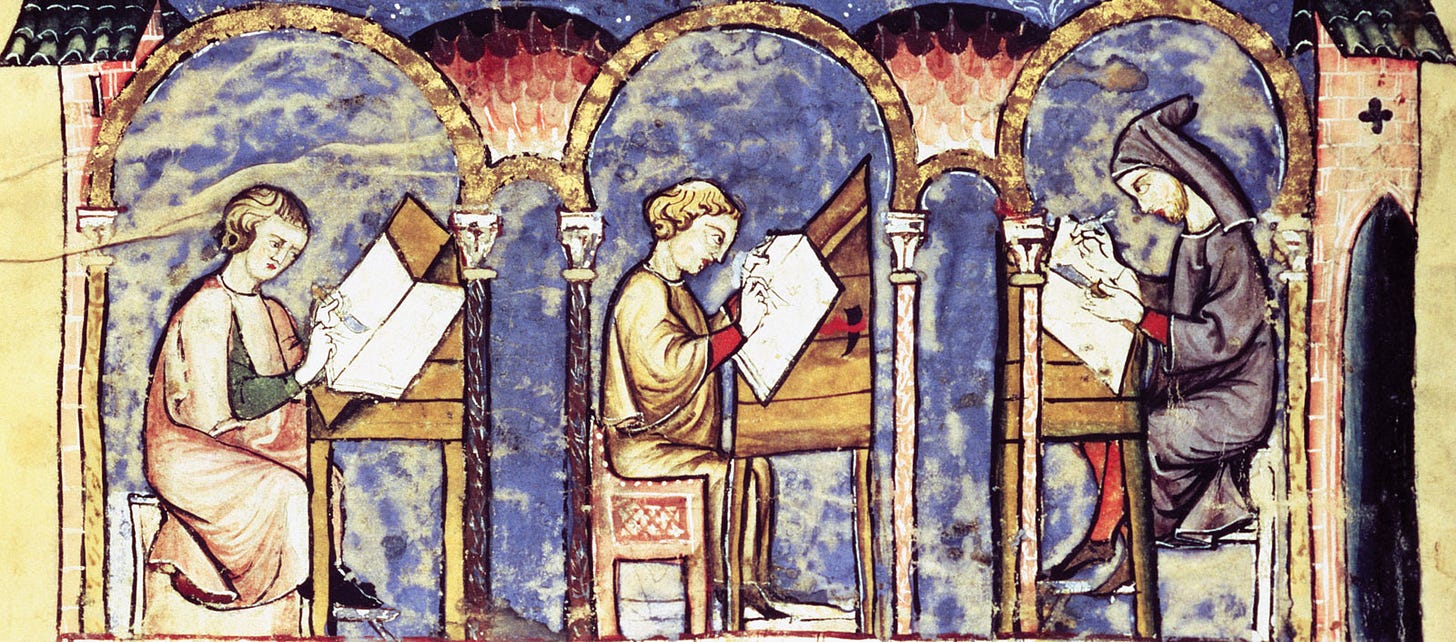
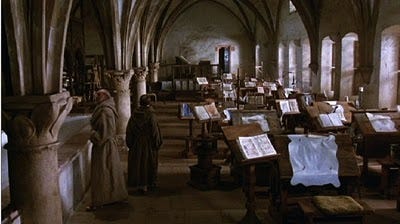
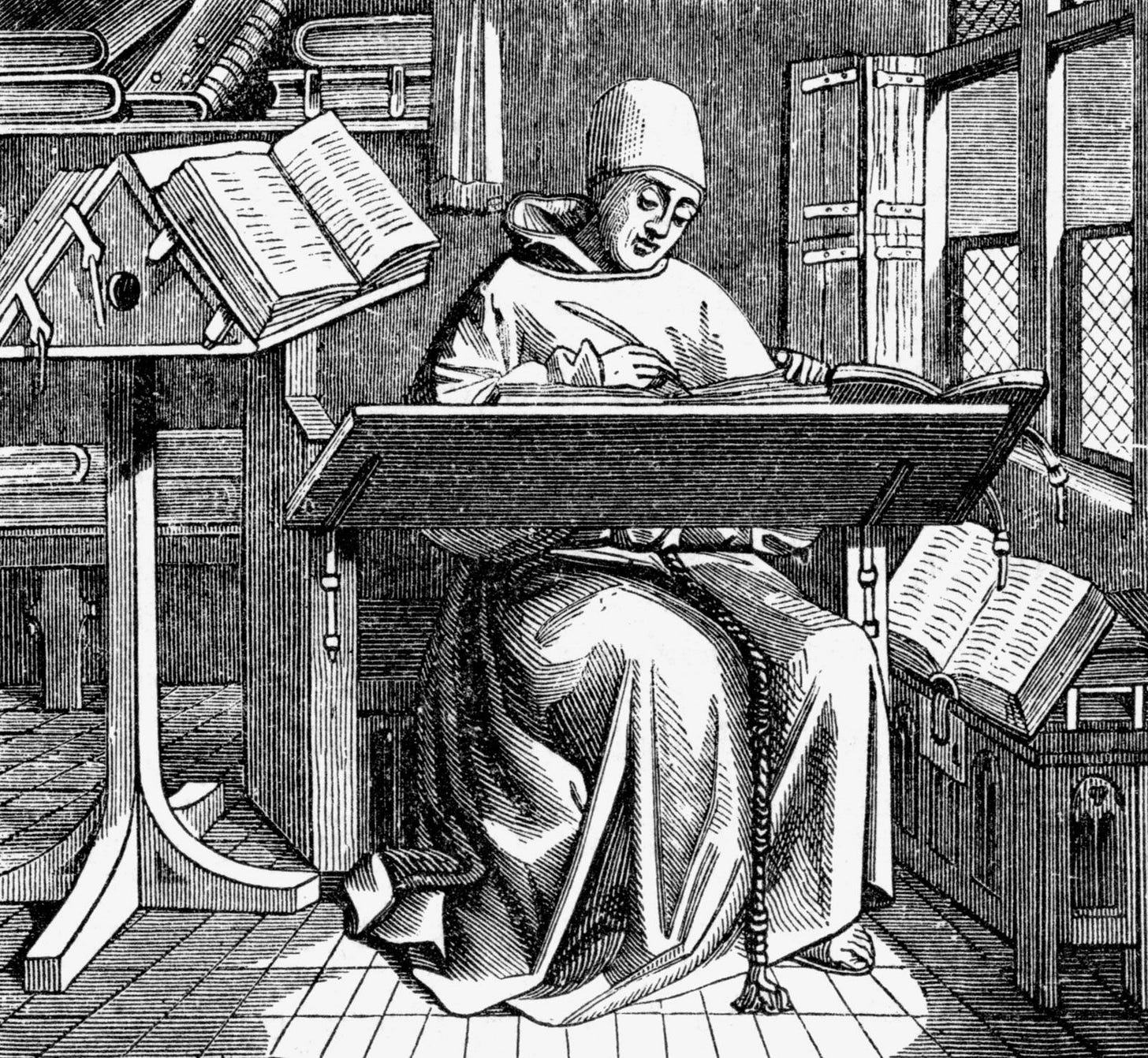
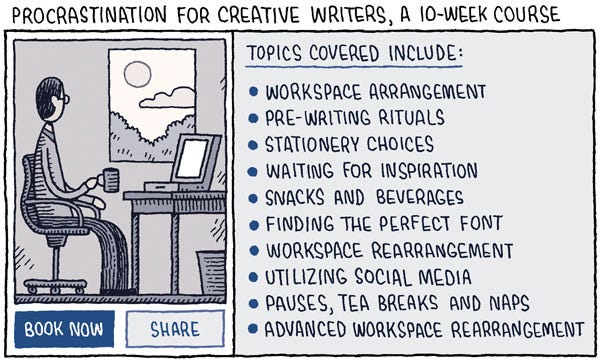
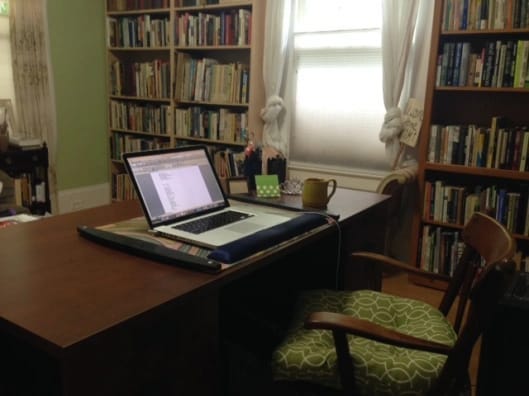
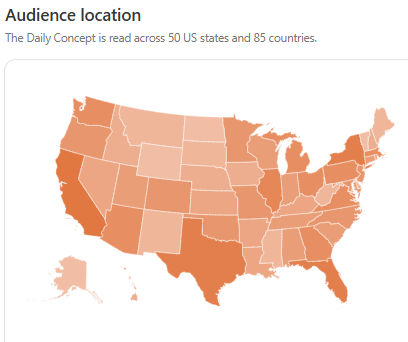

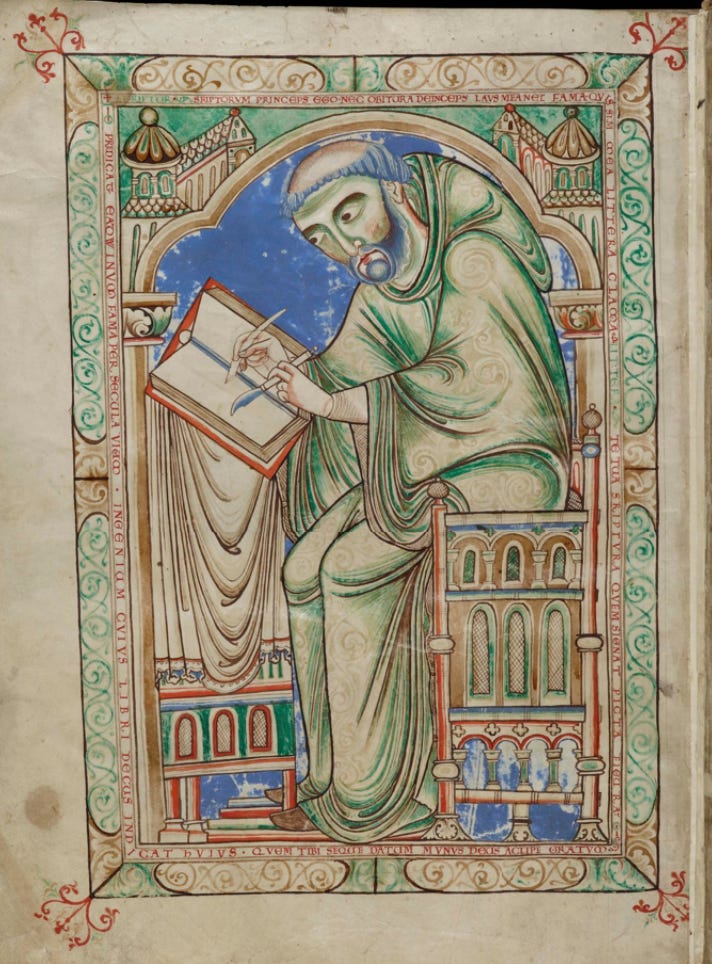

I just read this after browsing ( and liking) many of varied art pieces you’ve shared. I like the idea of a personal scriptorium, though social media and incessant surfing is always an issue. I’d likely have to resort to a yellow legal pad and hope I could read my handwriting beyond the first couple lines. Sigh.